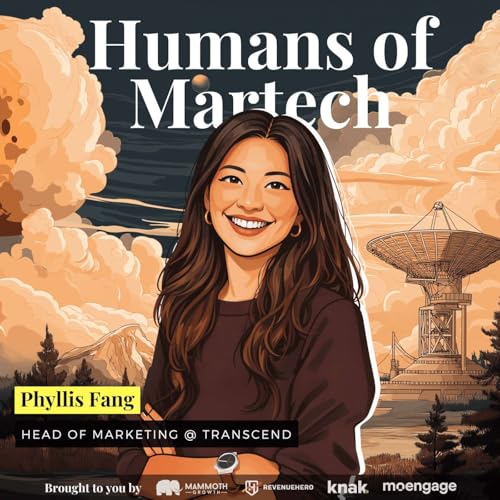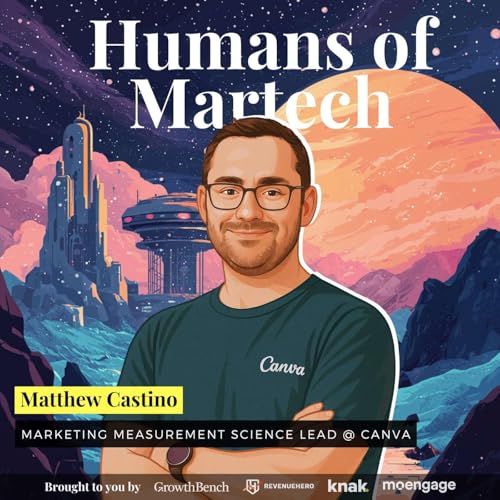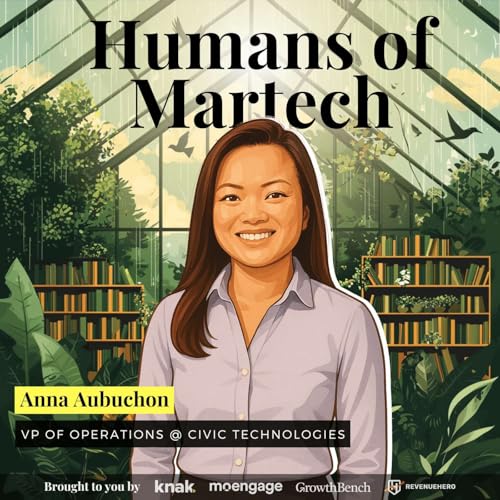What’s up everyone, today we have the pleasure of sitting down with Jordan Resnick, Senior Director, Marketing Operations at CHEQ.(00:00) - Intro (01:10) - In This Episode (03:47) - Demystifying Go-to-Market Security (06:14) - The Fake Traffic Surge (08:14) - How the Dead Internet Theory Connects to Bot Traffic Growth (12:31) - How to Detect Bot Traffic Through Behavioral Patterns (16:13) - How Go To Market Teams Reduce Fake Traffic And Lead Pollution (30:03) - Preventing Fake Leads From Reaching Sales (34:17) - How to Calculate Revenue Impact of Fake Traffic (38:09) - How to Report Marketing Performance When Bot Traffic Skews Metrics (43:58) - Trust Erosion From Fake Traffic (49:49) - How Marketing Ops Should Adapt Systems for Machine Customers (53:59) - Funnel Audits With Security Teams to Reduce Bot Traffic (57:47) - Detachment as a Career Survival SkillSummary: Distinguishing fake traffic from real machine customers starts where metrics break down. Jordan shows how AI-driven bots now scroll, click, submit forms, and pass validation while quietly filling dashboards with activity that never turns into revenue. The tell is behavioral texture. Sessions move too fast. Paths skip learning. Engagement appears without intent. Real machine customers behave with rhythm and purpose, returning, evaluating, integrating. Teams that recognize the difference lock down the conversion point, block synthetic demand before it reaches core systems, keep sales calendars clean, and only report once traffic has earned trust.About JordanJordan Resnick is Senior Director of Marketing Operations at CHEQ, where he leads the systems, data, and workflows that support go-to-market security across a global customer base. His work sits at the intersection of marketing operations, revenue operations, attribution, automation, and analytics, with a clear focus on building infrastructure that holds up under scale and scrutiny.Before CHEQ, Jordan led marketing operations at Atlassian, where he supported complex GTM motions across multiple business units and global markets. Earlier roles at Perkuto and MERGE combined hands-on execution with customer-facing leadership, integration design, and process ownership. His career also includes more than a decade as an independent operator, delivering marketing operations, automation, content, and technical solutions across a wide range of organizations. Jordan brings a deeply practical, execution-driven perspective shaped by years of building, fixing, and maintaining real systems in production environments.Demystifying Go-to-Market SecurityGo-to-market security shows up when growth metrics look strong and revenue outcomes feel weak. Marketing operations teams live in that gap every day. Jordan describes GTM security as a business-facing discipline that protects the integrity of acquisition, funnel data, and downstream decisions that depend on clean signals. The work sits inside marketing operations because that is where traffic quality, lead flow, and revenue attribution converge.When asked about how GTM security differs from traditional fraud prevention, Jordan frames the difference through decision-making pressure. Security teams historically focus on defending infrastructure and minimizing exposure. Marketing ops teams focus on maintaining momentum while spending real budget. GTM security evaluates risk in context, with an eye toward revenue impact, forecasting accuracy, and operational trust across teams that rely on shared data.Jordan grounds the concept in specific failure points that operators recognize immediately. GTM security examines where bad inputs quietly enter systems and multiply.Paid traffic that inflates sessions without creating buyers.Analytics skewed by automated interactions that look legitimate.Form submissions that pass validation and still never convert.Sales pipelines filled with activity that drains time and morale.Each issue compounds because systems assume the data is real. Teams keep optimizing against numbers that feel precise and still point in the wrong direction.“You are putting money into driving people to your website, and the first question should be how many of those people are real and able to buy.”Invalid traffic behaves like a contaminant. It flows from acquisition into attribution models, forecasting tools, CRMs, and revenue dashboards. Marketing celebrates growth, sales chases shadows, and finance questions confidence in the entire funnel. The problem rarely announces itself as a security incident. It surfaces as confusion, missed targets, and internal friction.GTM security matters because it gives marketing ops teams a framework to protect the inputs that shape every downstream decision. The work runs alongside traditional security while staying anchored in go-to-market outcomes. That way you can spend with confidence, trust your reporting, and hand sales teams signals grounded in real buying behavior.Key takeaway: Treat go-to-market security as ...
Más
Menos
 Feb 10 202648 m
Feb 10 202648 m 47 m
47 m 54 m
54 m 1 h y 2 m
1 h y 2 m Jan 13 20261 h
Jan 13 20261 h 1 h y 4 m
1 h y 4 m 56 m
56 m Dec 9 20251 h
Dec 9 20251 h
